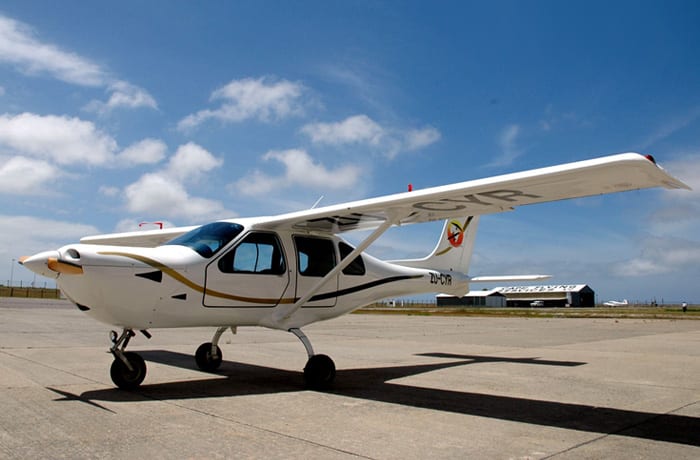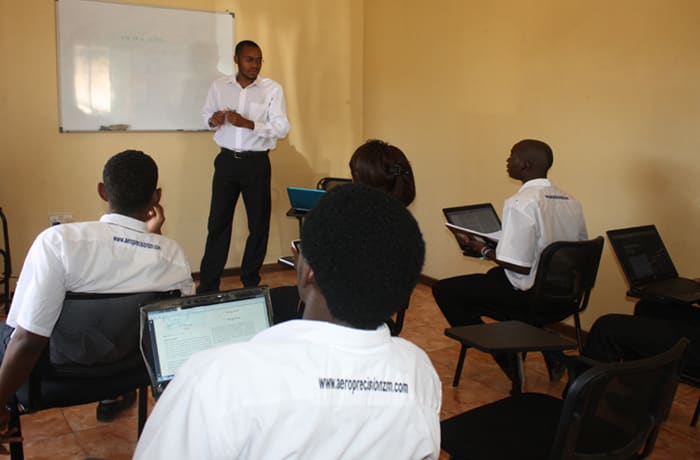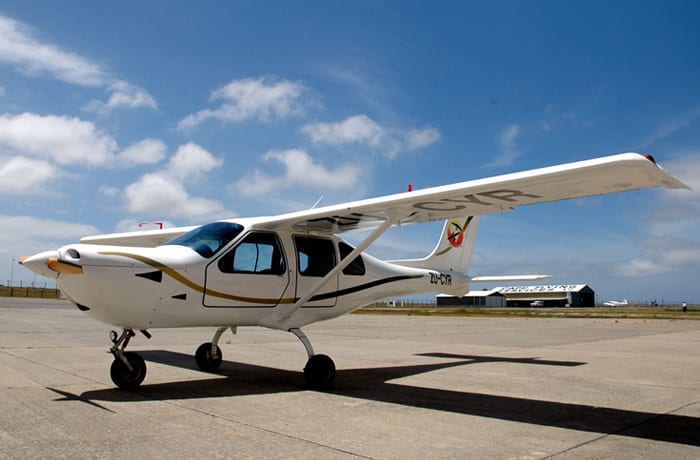The College is flexible and training services can be provided anywhere at any time.
Part 1 – Flying
Practical lessons are structured so that students can confidently progress from the very basics of flying, through to performing more challenging manoeuvres and handling more difficult situations. Lessons are also structured depending on the level each individual student is aiming for. A typical flying lesson is made up of a briefing, followed by a pre-flight aeroplane check, the actual flight, and finally a debriefing.
Initially students are able to fly only in the training area. As they progress, students fly further afield, subject to licence endorsements. Flight training enables students to fly a wide range of aircraft, depending on the endorsement attained.
Most training flights are carried out in the Aero Precision purpose-built, ergonomically designed Jabiru 160. Advanced students move on to a Cessna 150 or Cessna 182 or complete multi-engine training on a Piper Seneca II.
Part 2 – Aviation theory
The Aviation theory curriculum covers principles of flying, through a structured program of lessons which is set according to the qualifications desired by each student. As well as the practical flight tests, students are required to pass oral and written exams as they progress through the various stages of training.
Subjects include:
- Principles of flight
- Navigation
- Navigational aids
- Air law
- Flight planning
- Radio procedures
Duration of training programs
The length of the Aero Precision training program depends on a range of factors (e.g. if it is part time or full time study). Individual results for part time study vary depending on the time allocated and funds available. To give an idea, a Private Pilot Licence (PPL) takes most people approximately 12 months studying part-time; a Commercial Pilot Licence (CPL) takes approximately 12 months in a full time, structured program; if studying part-time, a motivated student could obtain their CPL in 18 months. The student's objectives, priorities and budgets influence training time, and occasionally so does the weather!
Aero Precision College provides a complete aviation student kit which includes two branded pilot shirts and a tie, a pilot briefcase, 'The Complete Private Pilot' by Bob Gardner (primary textbook), fibreboard E6-B flight computer and a rotating plotter for flight planning.
Outcomes and qualifications
Aero Precision College offers three licence types:
- Student Pilot Licence (SPL)
- Private Pilot Licence (PPL)
- Commercial Pilot Licence (CPL)
There are also various ratings (not available on SPL)
- Night Visual Flight Rules Rating
- Command Instrument Rating
- Instructor Rating
And several different licence endorsements:
- Constant speed propeller
- Retractable undercarriage
- Multi-engine
- Aircraft type endorsements
Requirements
Potential students need to be aged 16 or above to hold a Student Pilot Licence and fly solo. 17 is the minimum age to hold a Private Pilot Licence, and 18 for a Commercial Pilot Licence. There is no maximum age restriction.
Career opportunities
The demand for commercially qualified pilots is high. Once students have obtained a licence they can qualify for positions such as airline pilot, charter pilot, instructor pilot and agricultural pilot.
Students interested in enrolling at Aero Precision College are welcome to start with a Trial Instructional Flight (TIF) to help them decide if flying is for them. The TIF is a hands-on lesson where the interested candidate actually flies with the Aero Precision training aircraft, following a one-on-one pre-flight briefing with an instructor.Licence information
- Three licence types offered
- Three licence ratings
- Four different licence endorsements
Other key information
- Trial instruction flight offered
- Courses usually last between 12 and 18 months
- Students have to be at least 16 years old (older for some licence types)
- High demand for qualified pilots






